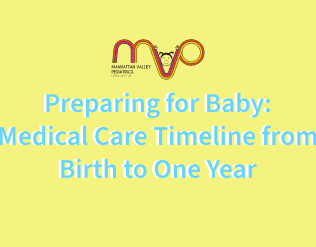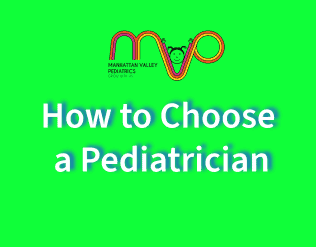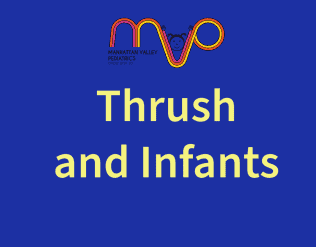Fireworks, Concerts & Hearing in Kids
MVP invited Dr. Alyssa Hackett from ENT and Allergy Associates to help us better understand how fireworks and attending sporting events like baseball games, concerts, and more can affect our children’s hearing. Check out her facts and tips, and let us know what you think!
Loud Noises
With the Fourth of July coming up, many parents have questions about how much to worry if their children are exposed to fireworks and other loud noises. Loud noises can cause temporary or permanent hearing loss, so knowing the answer to this question can help keep your ears healthy and your hearing sharp for years to come!
Understanding Noise-Induced Hearing Loss
Noise-induced hearing loss comes from damage to the inner ear, also known as cochlea. Inside the cochlea are tiny filaments called hair cells that recognize the incoming sounds and then send an electrical signal to the brain that allows us to hear. These hair cells are fragile and can be damaged by loud noise. Figuring out whether or not you are at risk for damaging your hearing depends on the noise’s intensity and the duration you are exposed to it. Take the example of the jackhammer. The volume of noise created, 105 decibels (dB), is dangerous and can create permanent hearing loss if exposed for long enough (less than 1 hour). The pedestrian on the street is safe to walk past the construction site without concerns about permanent hearing loss, but the construction crew will need noise protection as they are likely to be exposed to the jackhammer for extended periods of time. Most of the data on safe listening levels can be found through the Occupational Safety and Health Administration (OSHA) or the National Institute for Occupational Safety and Health (NIOSH). There are some differences between the two scales as NIOSH has more of a research focus, and OSHA sets and enforces standards.
Pro Tip: A good rule of thumb is that if your noise exposure is louder than a vacuum cleaner for more than 8 hours of the day, you should consider protecting your ears.
Enjoy Fireworks Safely
On the Fourth of July and other festive holidays often involving fireworks, most of the popping-type noise makers you and your children may be exposed to will not be particularly loud for an extended duration of time and pose very little to no risk to your child’s hearing. Also, taking your child to a professional fireworks display poses very little to no risk to your child’s hearing as spectators typically stay safe from where the fireworks are set off, and the noise dissipates over that distance. However, if you or a family member work with fireworks and are near them as they are let off, you will want to protect your ears with professional-grade earplugs or headphones, as even short exposures at close range can cause permanent hearing loss. While you are unlikely to need hearing protection while seeing a fireworks display with your family this 4th of July, some children do not like loud noises and may cover their ears. If your hearing is normal and you do not experience pain with the noise, then your child is also not experiencing physical pain, but the loud noise can be uncomfortable and upsetting. If your child is prone to covering their ears when the firetruck or ambulance passes, bringing over-the-ear headphones or earplugs to your celebrations may help everyone have a better time!
Concerts, Not Just for Summer
Summer concerts are another area of concern for families. While the decibel levels can vary based on who is playing and how close/far you may be from a speaker, the decibel levels can soar to 120dB or even higher! This can be in the range that is unsafe and can cause discomfort. While going to a single concert is unlikely to cause a permanent issue, musicians today uniformly wear custom ear molds to protect their hearing. If you are a frequent concertgoer, I recommend getting your own! For the rare concertgoer, I would still recommend bringing some earplugs to reduce the risk to your ears. One phenomenon that many of us have experienced after going to a concert is what is called a temporary threshold shift. This is when your hearing is down for a period of time after the concert but recovers. While these almost always recover in a few hours and are not a reason to rush to have your hearing checked, they are a sign of injury, and repeated injuries like this can cause a permanent problem. If you are experiencing hearing loss more than 24 hours after a concert, I recommend making an ENT appointment ASAP. Medications can be given that may help some of the hearing recover if there is a measurable loss, but they work best if given soon after the injury.
Headphones and Earbuds
Safe headphones/earbuds are always brought up whenever I ask about noise exposure! I haven’t looked into the data concerning the maximum decibel levels of each individual device, but I will say that in recent years, I definitely less often hear someone else’s conversation or music on the subway from the other person listening to their personal devices on the maximum volume. I’m not sure if it is simply that this behavior is less acceptable in our culture today, if the devices are better designed to keep sounds from escaping for others to hear, or if it is that devices today are engineered differently to limit one’s ability to damage their own hearing. I suspect it may be a combination of all of these. Most major smartphones have a standard feature that tracks the decibels it delivers to your earbuds or headphones and gives your listening habits a score to let you know if you are in a safe range for your hearing health. You can find this on the iPhone in the Health app by clicking “Show All Health Data” and looking for the “Headphone Audio Levels” section. Parents can check on their children’s use through this feature.
Ask the Experts
I hope this has given you all the information you need to have a safe and enjoyable long holiday weekend! The other pediatric physicians at ENT & Allergy and I are always happy to see you or your child with any ear or hearing-related concerns!
Questions About Your Child’s Hearing:
Children are regularly screened for hearing at their well visits. If you have questions about your child’s hearing, please ask the medical assistant or MVP provider to check it. We’re here to help and offer guidance.
Guest Blogger for MVP




